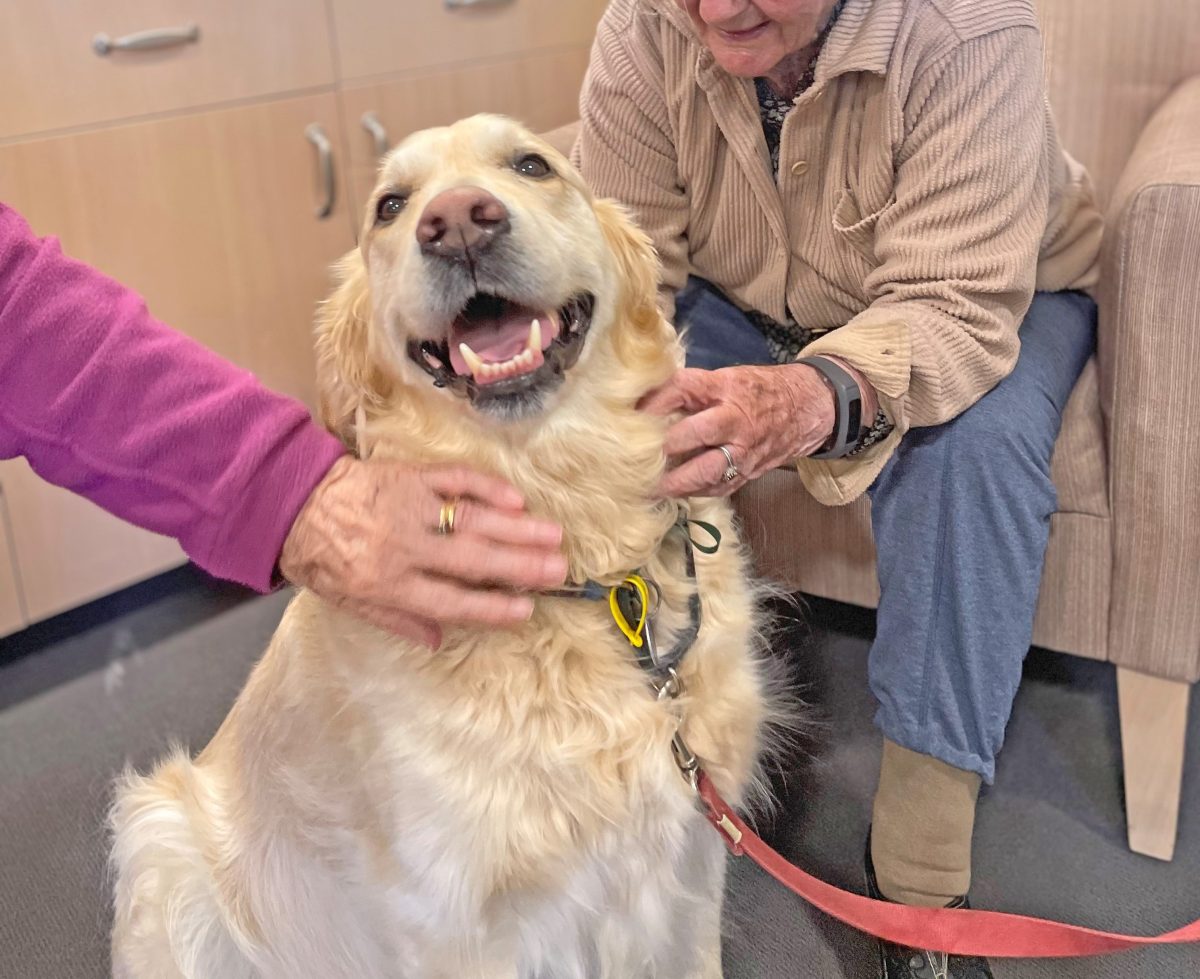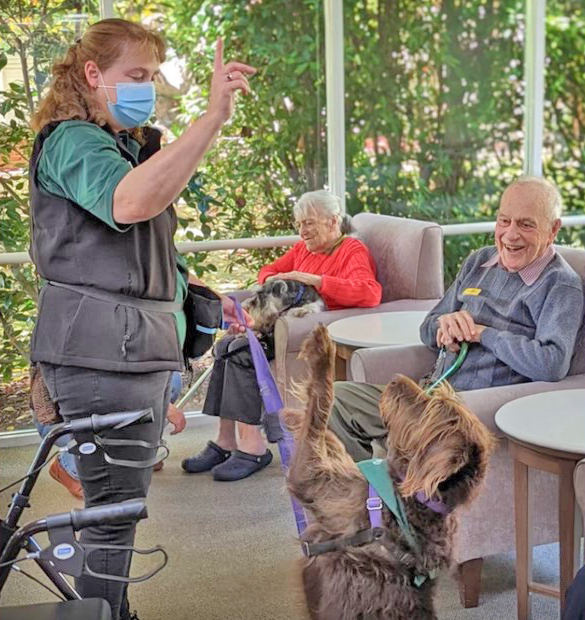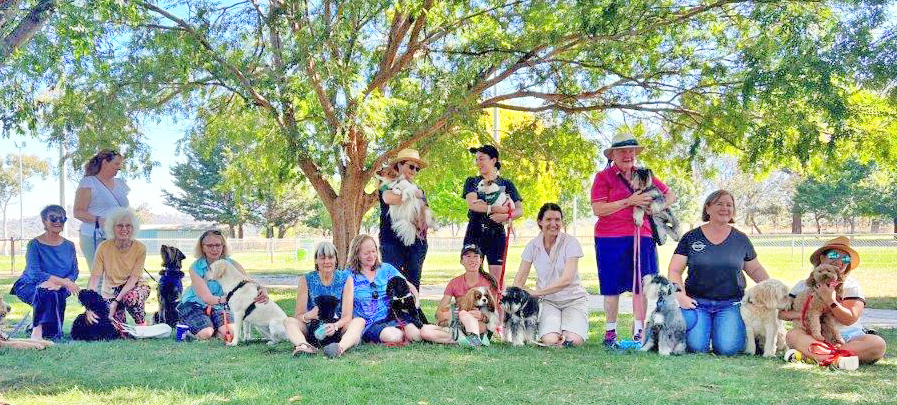
Bear, one of the newer Golden Retriever members of the ‘Dogs as Therapy’ team. Photo: ACT Companion Dog Club.
A friendly paw or two can brighten even the darkest day, and for the last 35 years, the ACT Companion Dog Club has been doing the rounds to give those struggling a little extra support.
This Sunday afternoon (8 October), the organisation will celebrate its ‘Dogs as Therapy’ (DAT) program anniversary with 70 past and present members at their club grounds (240 Narrabundah Lane, Symonston, from 2 pm to 4 pm). Along with food, drinks and a few awards, there will be a live demonstration from the program’s trained instructors.
While the club is also marking its 65th anniversary this year as the ACT’s oldest club for dog training, Dogs as Therapy is celebrated as its greatest achievement.
“Over the last 35 years, there’s been an increasing amount of interest and understanding of the program’s benefits throughout the community,” says Neale Prescott, the club’s junior vice president and DAT team member.
“It’s a good icebreaker for lonely and insular people and opens them up to conversation when they’re not usually able to engage.
“We’ve seen it lower blood pressure, relieve mental health struggles, and especially help comfort neurodivergent people.”

Coco and his owner bringing some much-needed entertainment. Photo: ACT Companion Dog Club.
Margaret McNicol began the DAT program in 1988 to provide those in nursing homes throughout the Canberra region some joy from “dogs of a suitable temperament”. Neale says all the dogs and owners have to go through two years of training before being selected by the program’s team.
“Instructors help the handlers reward dogs with food, often with play, until they feel completely confident to do different things like sit, lay down, and even walk backwards to get alongside someone in a wheelchair.
“The force-free and rewards-based approach for training has all sorts of dogs involved that would once not be considered appropriate for small and enclosed environments – we’ve had tall, alert and very fast Salukis, poodles, Irish terriers, and a few other big dogs originally bred for sport.”
DAT began at the Jindalee Nursing Home in Narrabundah but, over time, expanded to other facilities in Curtin, Hughes, Weston and Griffith. The DAT team even had a running joke their dogs could do the rounds by themselves, which was proved right by Margaret’s golden retriever ‘Kerry’.
The story goes that while the DAT group were outside Brindabella Gardens (now Fred Ward) in Curtin, Kerry went missing. After a few minutes of panicked searching, they found that he’d already begun his routine all on his own.

The full DAT team of owners and dogs. Photo: ACT Companion Dog Club.
Club senior vice president and program leader Leslie Pothan will run another demonstration at Floriade next Sunday (15 October at the Stage 88 Lawns at 1:30 pm as part of Floriade’s A Dog’s Day Out).
To learn more about Behaviour Training and dog sports classes in Agility, Dances With Dogs, Flyball, Obedience Trialling, Rally, and Dogs as Therapy, visit the ACT Companion Dog Club.












